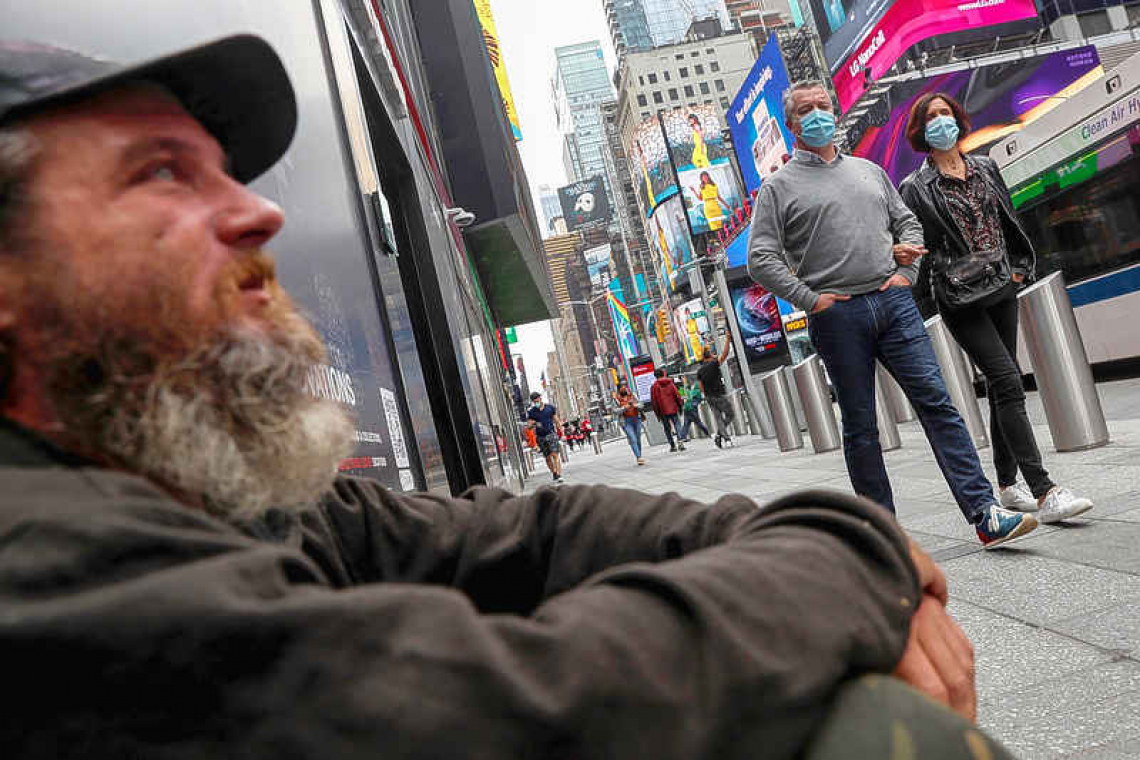NEW YORK--An influx of homeless people into midtown Manhattan after an emergency move by New York City to ease crowding in shelters has been a fact of pandemic life since last spring.
Many of the newcomers, living in nearby hotel rooms contracted by the city, have been largely inconspicuous. But others with mental health and drug problems have become a growing presence in the Hell's Kitchen neighbourhood and adjacent Times Square.
As the city looks to welcome back tourists and office workers with the pandemic lifting, suburban commuters and residents say there is a palpable difference from the New York they knew before much of the country locked down in March 2020. "They make me feel like I wish I could do something," said Rachel Goldstein, an IT director, as she emerged from Penn Station, a major rail hub, last week for her first on-site workday since the pandemic began.
Giselle Routhier, policy director for the Coalition for the Homeless advocacy group, faulted the state and city for not providing enough mental health services and for "shuffling people" between locations. "What we actually need for the city to do is to offer folks on the streets access to single occupancy rooms where they can come inside and feel that they're safe from the elements and from the spread of the coronavirus," she said.
Longer term, the city needs "more robust housing production for extremely low-income and homeless households, particularly for single adults," many of whom were pushed into homelessness by the economic fallout of the pandemic, Routhier said.
Several of the more than a dozen Democrats running for mayor in next Tuesday's primary election also have called for converting hotels into housing for the homeless. As the pandemic raged last spring, the Department of Homeless Services (DHS) relocated 10,000 people from crowded shelters to 67 hotels whose tourism, business and convention bookings had dried up. Over 20% were packed into hotels in the Chelsea and Hell's Kitchen neighbourhoods west of Times Square and the Theater District, the New York Post reported, citing a letter from Manhattan Borough President Gale Brewer that it had obtained.
In a precinct that includes Times Square, reports of assaults and robberies have shot up 185% and 173% respectively so far this year, even as citywide assaults rose by only 8% and robberies fell 5%, according to New York Police Department (NYPD) statistics.
Scott Sobol, 44, a real estate agent who lives in Hell's Kitchen, believes only a few of the homeless residents are responsible for the additional complaints, and faulted officials for not vetting them for mental health issues, drug problems and criminal histories.
"What (neighbours) want is to stop getting harassed on the street," he said. "If a homeless rehabilitation center can coexist with a sense of polite life, we have no issues with it."







